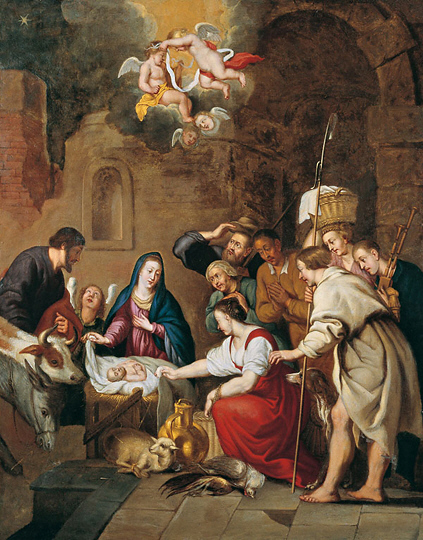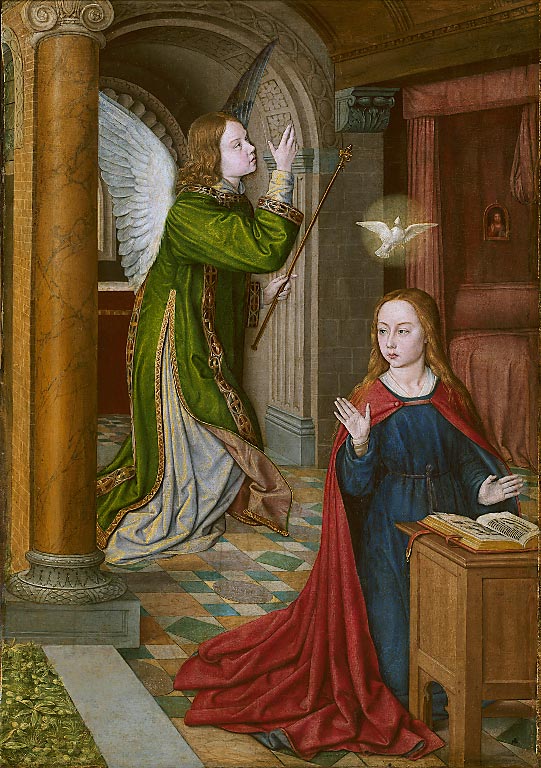Dear Brothers and Sisters,

The first Sunday of Advent (December 3 this year), begins a new cycle of worship in the Christian liturgical calendar. Together with Christmas, Advent proclaims a key point of Christian doctrine—the virgin birth of Jesus.
The Apostles’ Creed
In accord with Matt. 1:18-25 and Luke 1:26-2:20, The Apostles’ Creed affirms that Jesus “was conceived by the power of the Holy Spirit and born of the virgin Mary.” Though not written by the original apostles, the Creed was widely embraced as an accurate summation of the first apostles’ core teachings. The basic content of The Apostles’ Creed appeared as early as A.D. 215 in a document used by Hippolytus in preparing candidates for baptism. Restatements of this basic teaching then appeared over the next several centuries in multiple places, including a commentary on The Apostles’ Creed, written by Tyrannius Rufinus in about A.D. 400. The version of the Creed he examined is quite similar to The Apostles’ Creed that is used today by many churches (GCI included).

(public domain via Wikimedia Commons)
Though early versions of the Creed contained the same central doctrinal ideas (called the “rule of faith”), they varied somewhat, due largely to the need to defend against different heresies. Some of those early versions were quite long—here is the first part of one written by Tertullian:
Now, with regard to this rule of faith—that we may from this point acknowledge what it is which we defend—it is, you must know, that which prescribes the belief that there is only one God, and that he is none other than the Creator of the world, who produced all things out of nothing through his own Word, first of all sent forth; that this Word is called his Son, and, under the name of God, was seen “in diverse manners” by the patriarchs, heard at all times in the prophets, at last brought down by the Spirit and power of the Father into the Virgin Mary, was made flesh in her womb, and, being born of her, went forth as Jesus Christ.
Now, compare what Tertullian wrote with the opening lines of The Apostles’ Creed:
I believe in God, the Father almighty, creator of heaven and earth; I believe in Jesus Christ, his only Son, our Lord. He was conceived by the power of the Holy Spirit and born of the Virgin Mary.
Though The Apostles’ Creed is more succinct (which I appreciate!), both statements establish three key points of Christian teaching concerning Jesus: 1) that the eternal Son of God began his earthly life as a special act of God the Father, 2) that Jesus was conceived by the Holy Spirit, and 3) that Jesus was genuinely the son of a human mother (Mary) who, at the time Jesus was born, was a virgin.

(public domain via Wikimedia Commons)
The doctrine of the virgin birth of Jesus
There are, of course, those who deny the doctrine of the virgin birth of Jesus (and thus reject The Apostles’ Creed along with the Nicene Creed). Then there are others who misconstrue that doctrine, claiming that Mary somehow is co-redeemer with Jesus in our salvation. However, as the Gospel of John declares, our salvation (which involves being “born of God”) is not a matter of “natural descent, nor of human decision or a husband’s will” (John 1:12-13). T.F. Torrance comments:
The virgin birth… excludes the idea that God and man are co-equal partners [in salvation]…. What took place [in the virgin birth of Jesus] is an act under the sovereign will of God, in which God alone was Lord and Master, so that the birth was grounded in the sovereign will of God alone. (Incarnation, the Person and Life of Christ, p. 99)
Through Jesus’ virgin birth, God, by his own sovereign decision, joined himself with our humanity. Mary is thus not co-redeemer, though as T.F. also points out, she is an admirable model of obedient faith in response to the grace of God:
Grace takes a form in the birth of Jesus which we may take as a pattern or norm for all our understanding of grace. Here God takes the initiative and approaches Mary through the word of his angelic messenger—the word proclaimed to Mary is the word of election or grace: she is chosen and told of God’s choice. She has nothing to do in this matter except what is done in her under the operation of the Spirit. What Mary does is simply to receive the word, to believe, which she does not in her own strength but in the strength given her by the Lord, and she is blessed because of that, not because of her virginity…. The Word which Mary heard and received and obeyed became flesh of her flesh. That is the normative pattern for the believer in his or her attitude toward the Word announced in the gospel, which tells men and women of the divine act of grace and decision taken already on their behalf in Christ. (Incarnation, the Person and Life of Christ, p. 101)
Celebrating God’s work on our behalf
As the apostle Paul states in Ephesians 2:8, we are saved by God’s grace, not by our works. It is the gracious work of the Triune God on our behalf that saves us. Our works (and the works of any other person, Mary included) do not bring about that salvation. Instead, by faith (also God’s gift), we are born of God, receiving, through the Spirit, the salvation that has been accomplished for us in Jesus Christ. Note this comment from T.F.:
What happened once and for all, in utter uniqueness in Jesus Christ, happens in every instance of rebirth into Christ. Just as he was born from above of the Holy Spirit, so are we born from above of the Holy Spirit through sharing in his birth. (Incarnation, the Person and Life of Christ, p. 102)
Dietrich Bonhoeffer offers a similar perspective on the miracle of the Incarnation that we celebrate during the Advent-Christmas season:
Only the humble believe him and rejoice that God is so free and so marvelous that he does wonders where people despair, that he takes what is little and lowly and makes it marvelous. And that is the wonder of all wonders, that God loves the lowly…. God is not ashamed of the lowliness of human beings. God marches right in. He chooses people as his instruments and performs his wonders where one would least expect them. God is near to lowliness; he loves the lost, the neglected, the unseemly, the excluded, the weak and broken. (God Is in the Manger: Reflections on Advent and Christmas, p. 22)
To T.F.’s and Bonhoeffer’s words, I add my hearty, Amen.
Wishing you and yours a blessed Advent-Christmas season,
Joseph Tkach
Update on 12/6/17: for more on this topic, click here.



The nativity mystery “conceived from the Holy Spirit and born from the Virgin Mary”, means, that God became human, truly human out of his own grace. The miracle of the existence of Jesus , his “climbing down of God” is: Holy Spirit and Virgin Mary! Here is a human being, the Virgin Mary, and as he comes from God, Jesus comes also from this human being. Born of the Virgin Mary means a human origin for God. Jesus Christ is not only truly God, he is human like every one of us. He is human without limitation. He is not only similar to us, he is like us.
― Karl Barth, Dogmatics in Outline
Thank you so much for this review of truth and our part in it!
Whenever I hear or read this truth of our real salvation by the grace of Jesus Christ, it goes straight to my heart, which then wells up in gratitude.
I praise God for his revealing of Truth to us in these troubling times.
That salvation is entirely by the grace of God, thus excluding any human endeavor, “is prefigured in Jesus’ conception. Joseph, who is symbolic of humanity, has no part. [As T.F. Torrance wrote] ‘The virgin birth means that the sovereignty of man… has no place.’ [T.F.] perceives in this the basic gospel message: humanity is saved not by anything we could do but by God’s grace alone” (“The Claim of Humanity in Christ, Salvation and Sanctification in the Theology of T.F. and J.B. Torrance” by Alexandra S. Radcliff, p. 34).